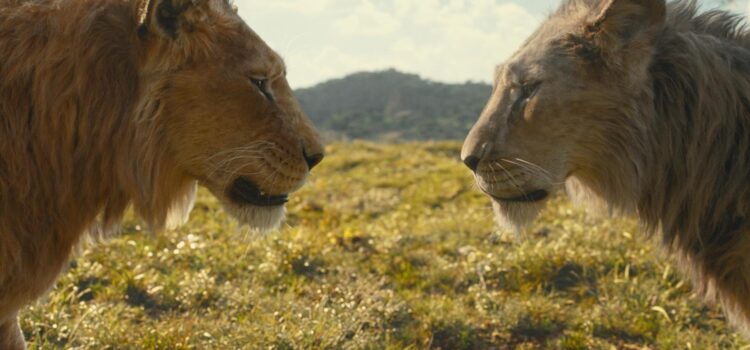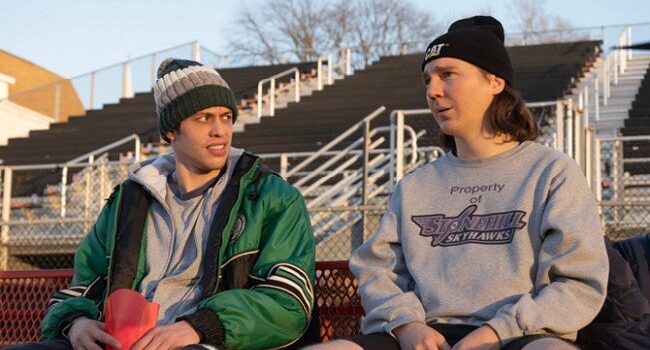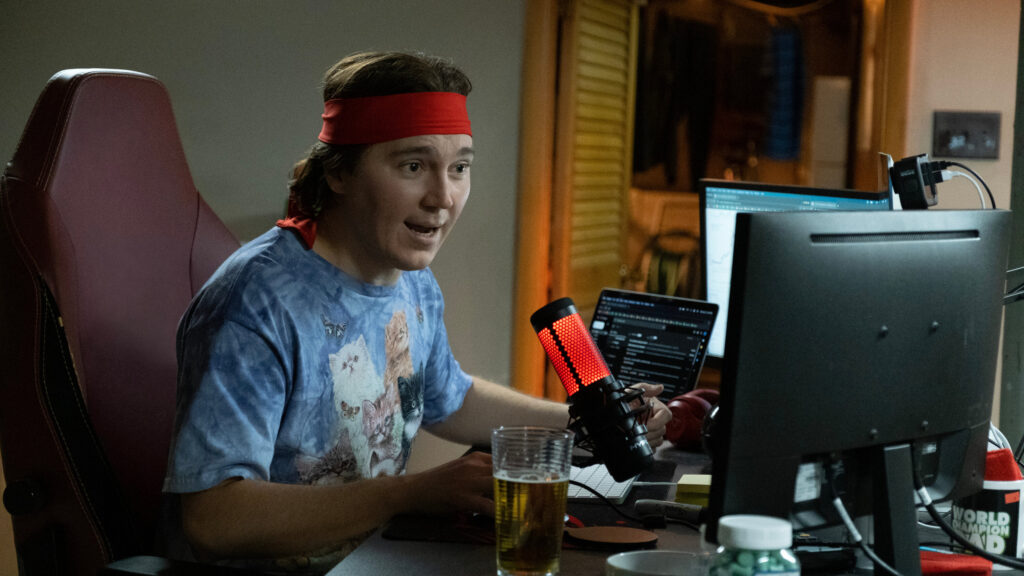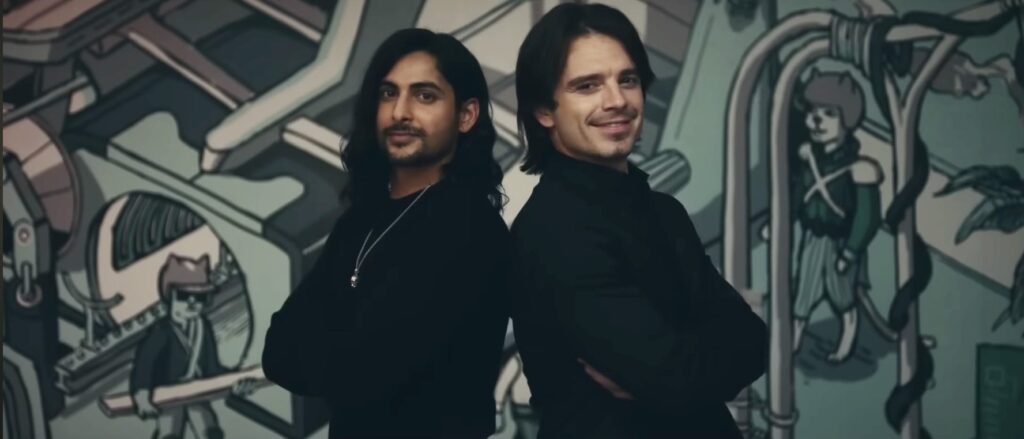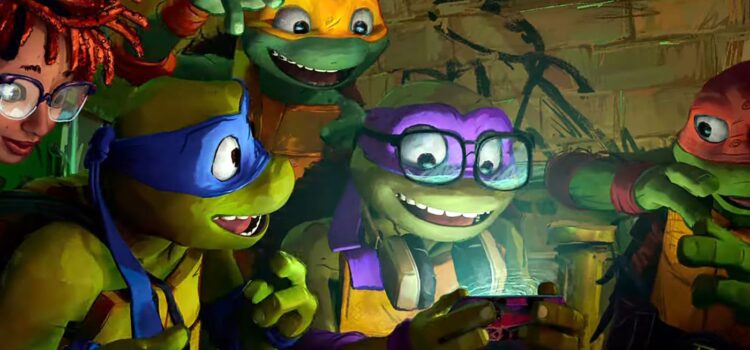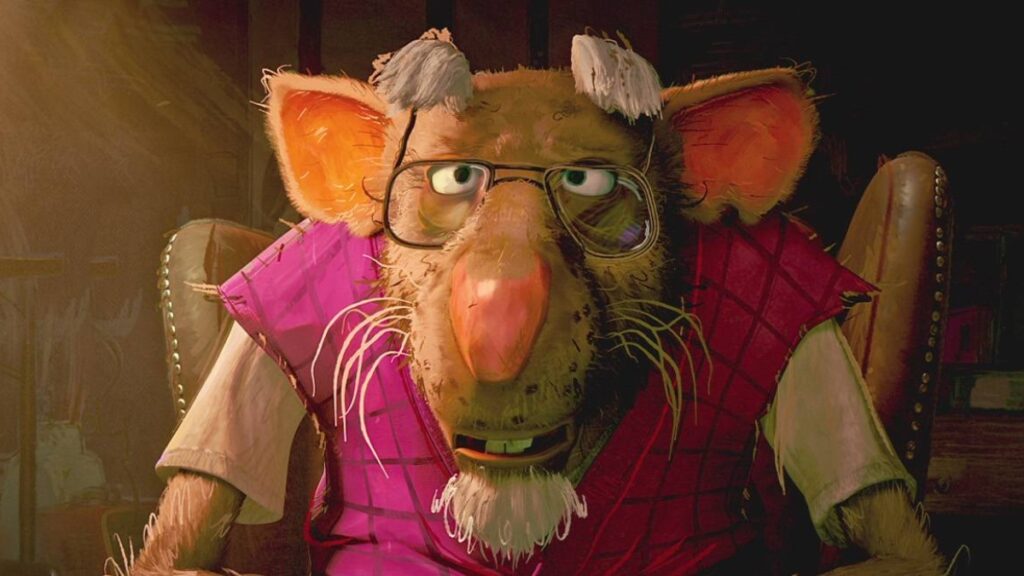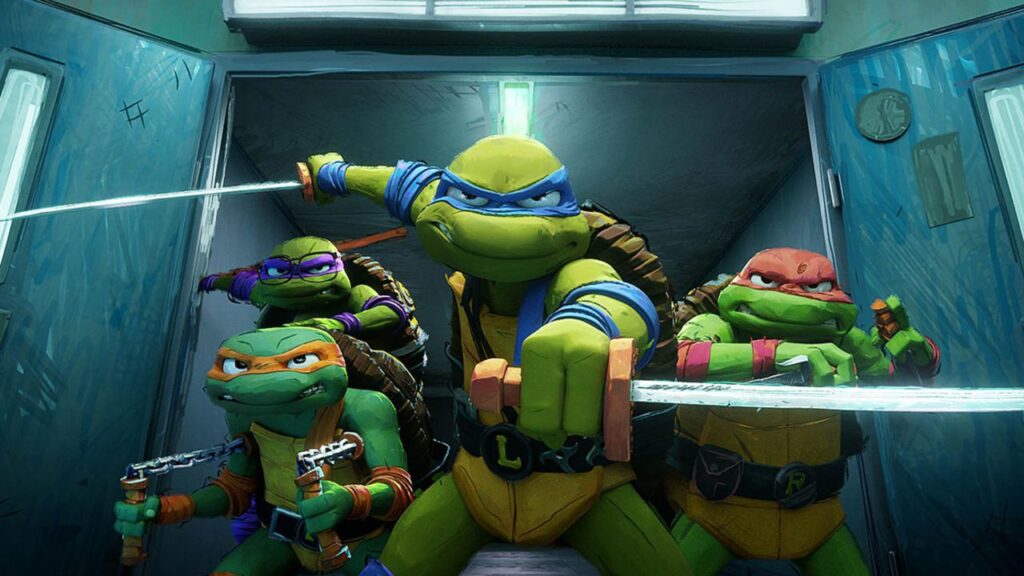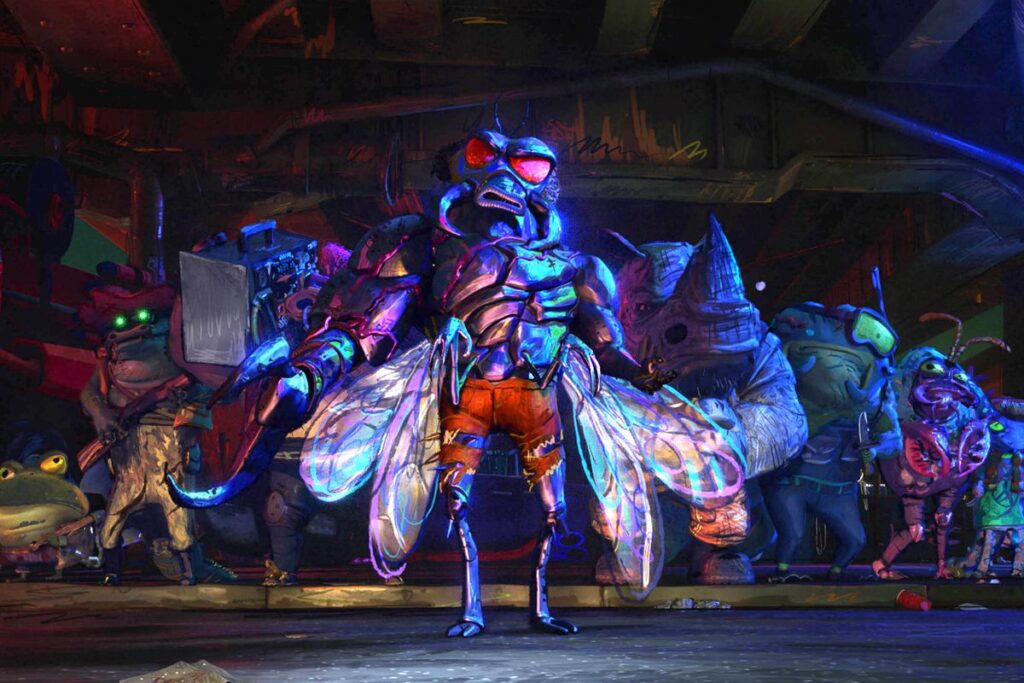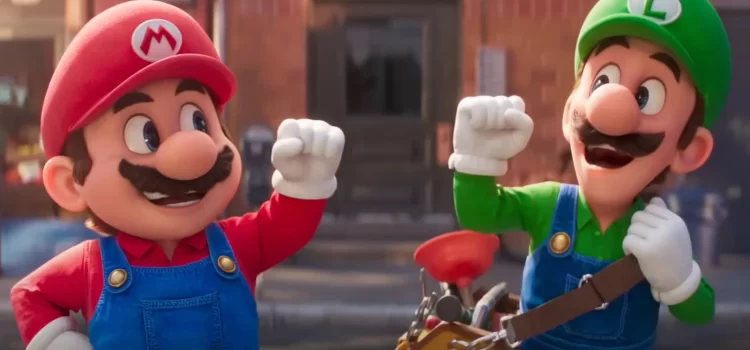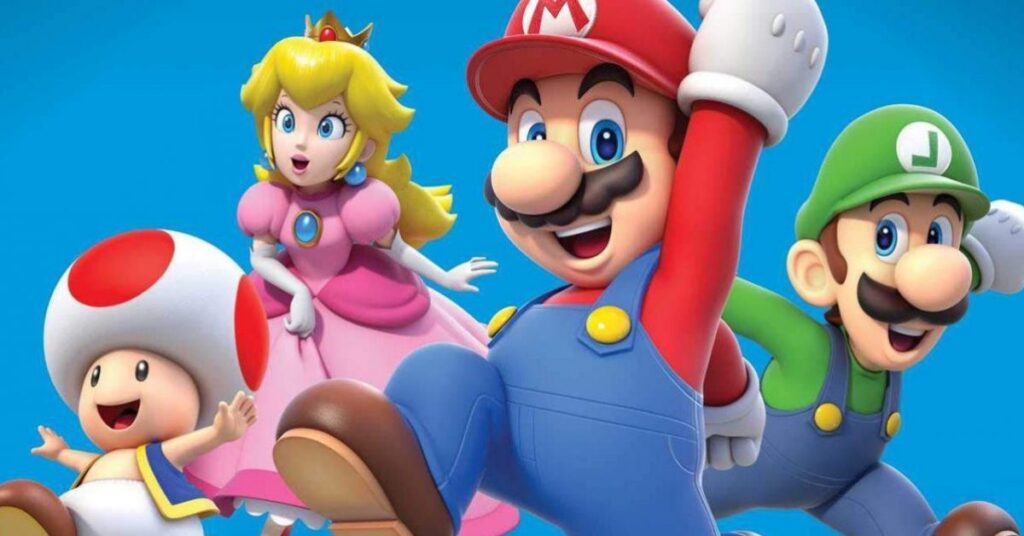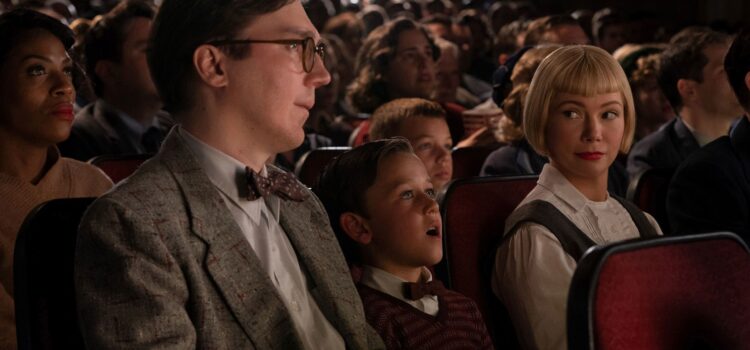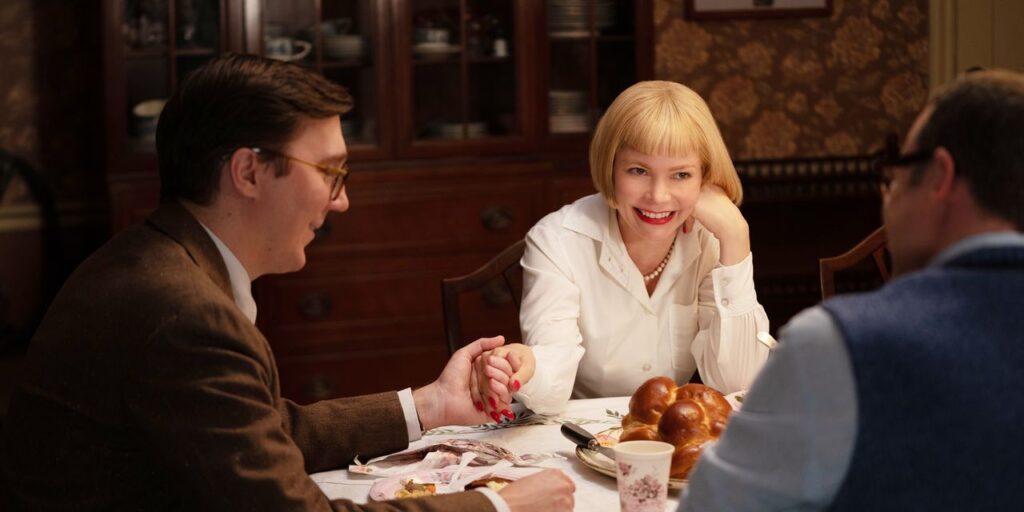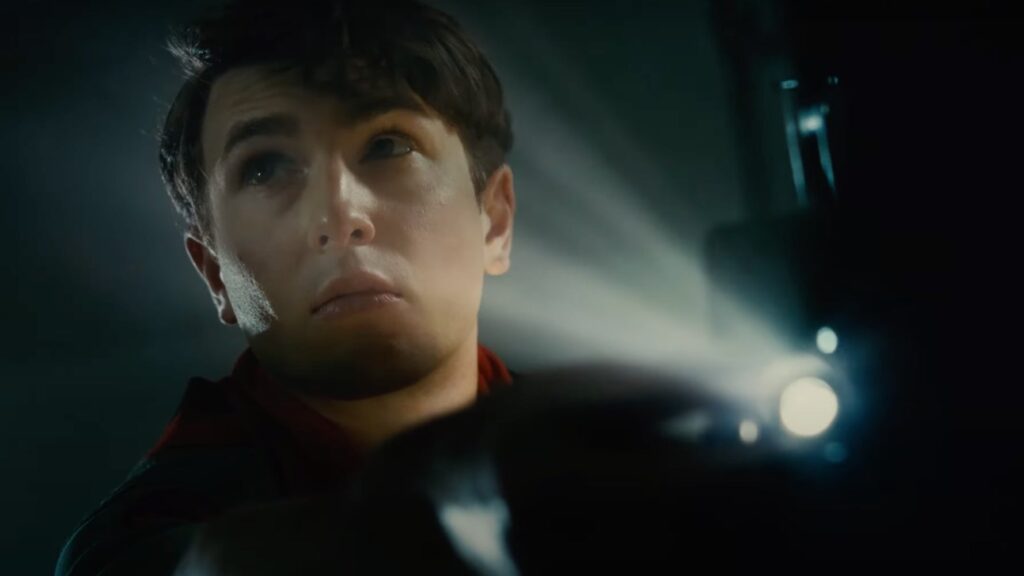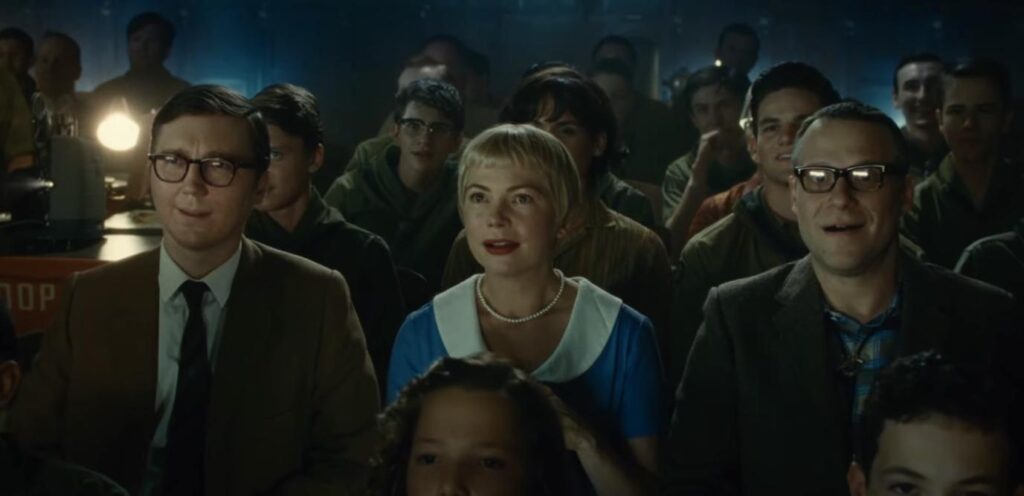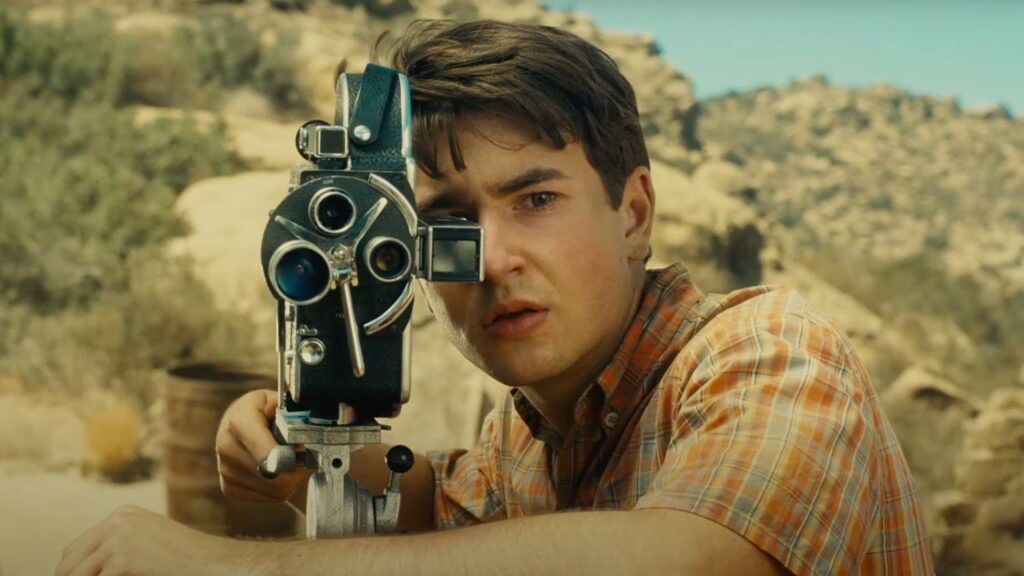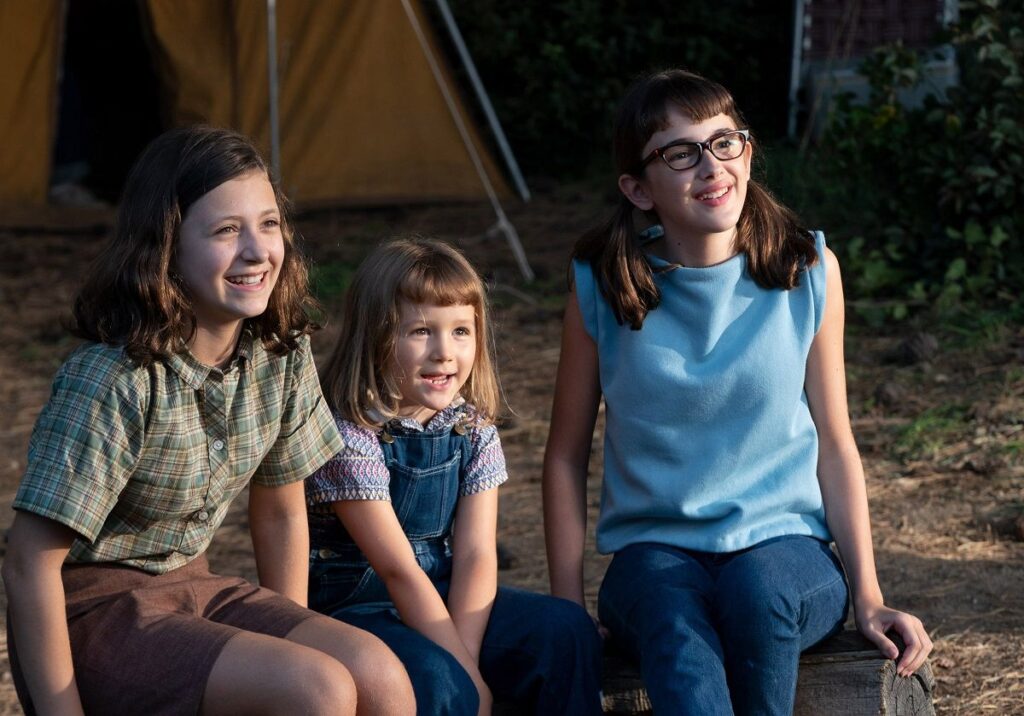By Lynn Venhaus
Woof. Thirty years after its landmark opening, Disney’s “The Lion King” has returned as a computer-animated prequel that’s a mere shell of its majestic and inspired coming-of-age drama origins.
Lacking a creative spark, this misfire is a generic, dull and soulless attempt to go back to the familiar Shakespearean theme, with Biblical roots, to rehash family bonds and destiny. Yawn.
Walt Disney Studios has blended live-action filmmaking techniques with photoreal computer-generated imagery, which looks like a nature documentary and has less of an emotional impact.
A nice touch is opening the film with a dedication to James Earl Jones, who voiced the regal Mufasa in Disney projects from the original 1994 to the remake in 2019. He died in September.
To set in motion Mufasa’s journey as a lion cub after his parents (Keith David and Anika Noni Rose) perish in a frightening flood, the wise shaman Rafiki (John Kani) begins telling Kiara (Blue Ivy Carter), daughter of Simba (Donald Glover) and Nala (Beyonce Knowles-Carter), the origin story of her grandfather.
Lost and alone, Mufasa, voiced as a young cub by Braelyn Rankins and Aaron Pierre as he gets older, is aided by Taka (Theo Somolu as a cub, Kelvin Harrison Jr. later), an heir to a royal bloodline.
Taka’s father King Obasi (Lennie James) is suspicious of outsiders, but his mother Queen Eshe (Thandiwe Newton) is more understanding, and the future king proves his mettle.
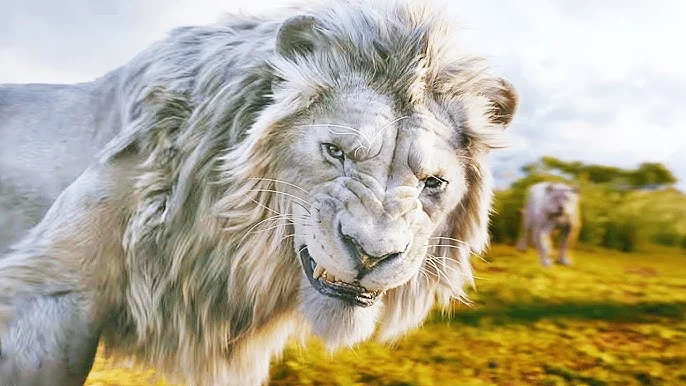
They team up to thwart their vicious foe, a pride of hateful territorial white lions – looking like they’re rolled in flour, I suppose so we can keep them straight – led by the evil Kiros (Mads Mikkelsen).
Mufasa eventually rises to become king of the Pride Lands, but not without much strife and multiple conflicts. He learns the dangers of tribalism and tyranny.
After all, this is the origin story of Scar as well. We eventually find out the reasons why his ‘brother’ Taka becomes bitter and resentful and will eventually betray him more than once.
The pair pick up a couple other strays on an expansive sojourn to the promised land Milele. The orphaned lioness cub Sarabi (Tiffany Boone) falls in love with Mufasa, spurning Taka. Rut-ro. Her screechy scout Zazu (Preston Nyman) the hornbill is back, both helping and hindering.
Returning from the unfortunate 2019 ‘live action’ remake are a younger but still mystical Rafiki (Kagiso Ledigo) and the now annoying self-absorbed duo of Pumbaa the warthog and Timon the meerkat as voiced, insufferably, by Seth Rogen and Billy Eichner.
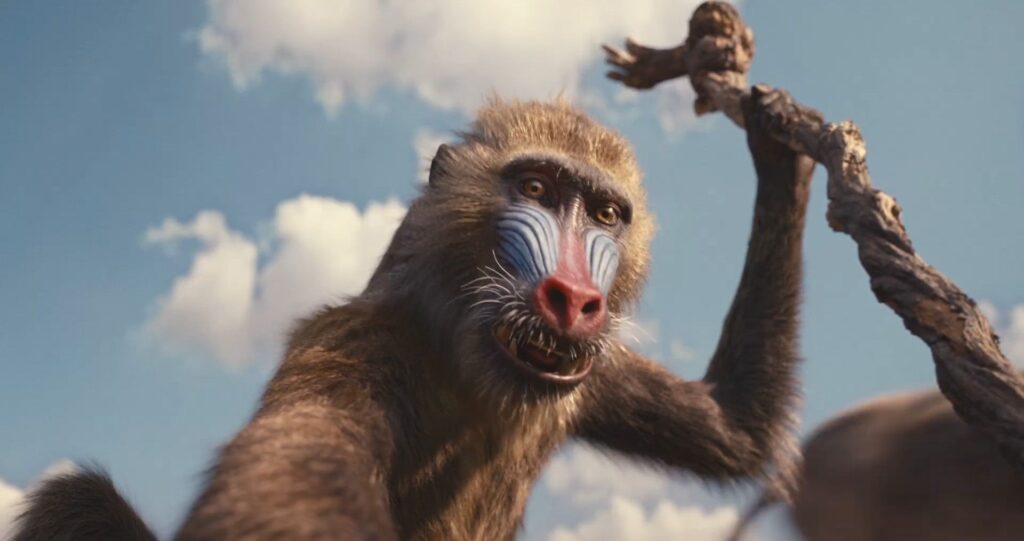
Their banter isn’t funny and pulls us away from the journey, not to mention wrecking our “Hakuna Matata” vibe. Every time they start chattering, it halts the trek with forced humor. Their meta references about the 1997 stage musical are odd and seem out of place.
This band of misfits is on what seems to be an endless journey. Directed by the esteemed Barry Jenkins, the shot selection includes wide grand vistas – mimicking drone action above snow-capped mountains and expansive parched savannahs, which alternates with extreme close-ups of lions.
While the vocal work is fine, the remarkably similar visuals make it hard to distinguish the lions. The ensemble is too big to invest in the characters, too.
Emmy, Oscar and Tony winner Lin-Manuel Miranda’s songs usually signal a bright spot in any Disney project but here they seem intrusive. Did we need them?
They just seem to unnecessarily pad the narrative, telling us what we can see – “Milele” as a beautiful utopia, “I Always Wanted a Brother” as the bonding occurs between Mufasa and Taka, then the love song “Tell Me It’s You” and the friends relying on each other on their trek “We Go Together” (as in “Grease”?).
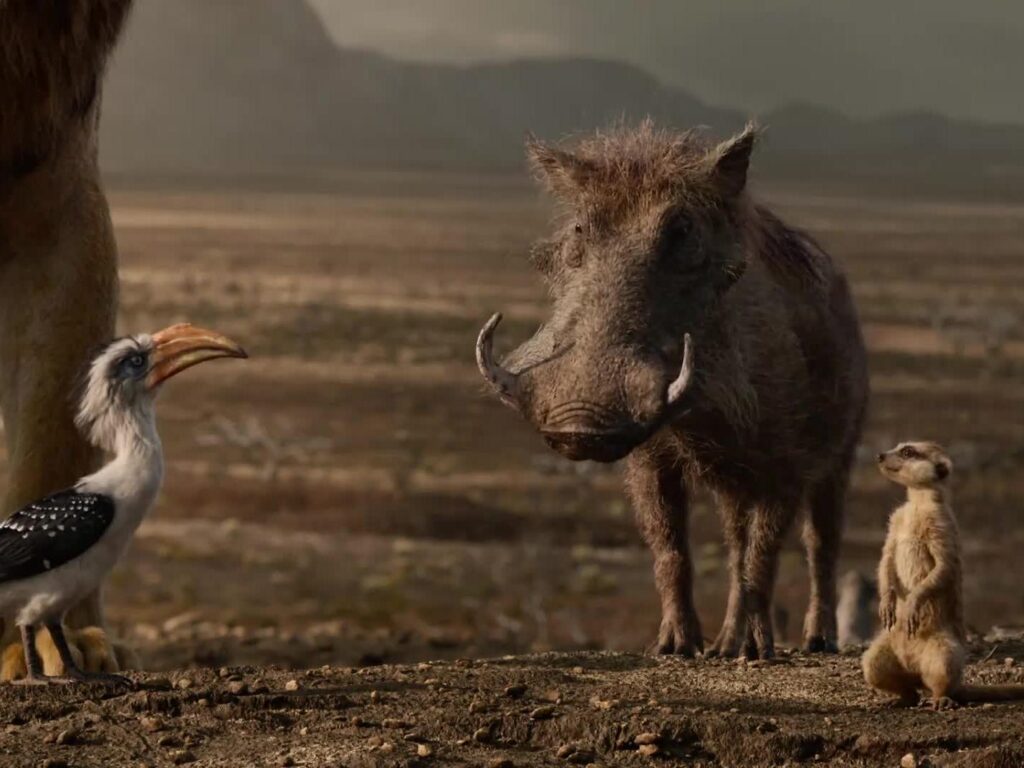
While his lyrics are always clever, this score pales in comparison to the Elton John – Tim Rice tunes and Hans Zimmer score that each won Oscars, or even his multi-award-winning “Encanto.”
“The Lion King” was the highest grossing film of 1994 and the film became the top home video, holding that record for years. It was adapted for the stage in 1997, earning six Tony Awards and is now the third longest running musical on Broadway and the highest-grossing show of all time.
Its pedigree is undeniable, it’s a favorite with families, and will make a lot of money. But couldn’t they find a fresher, more engaging story than to keep going over the same themes just to appeal to fan service? Nostalgia aside, what are the biggest takeaways? That Disney is going to wring every penny out of the public for its beloved properties until the end of time?
“Mufasa: The Lion King” is an animated adventure family musical directed by Barry Jenkins with the voice-over work of Aaron Pierre, Kelvin Harrison Jr., John Kani, Tiffany Boone, Kagiso Lediga, Mads Mikkelsen, Thandiwe Newton, Lennie James, Anika Noni Rose, Keith David, Blue Ivy Carter, Beyonce Knowles-Carter, Donald Glover, Seth Rogen, Billy Eichner, Preston Nyman. It is rated PG for action/violence, peril and some thematic elements and the run time is 2 hours. It opened in theaters on Dec. 20. Lynn’s Grade: C
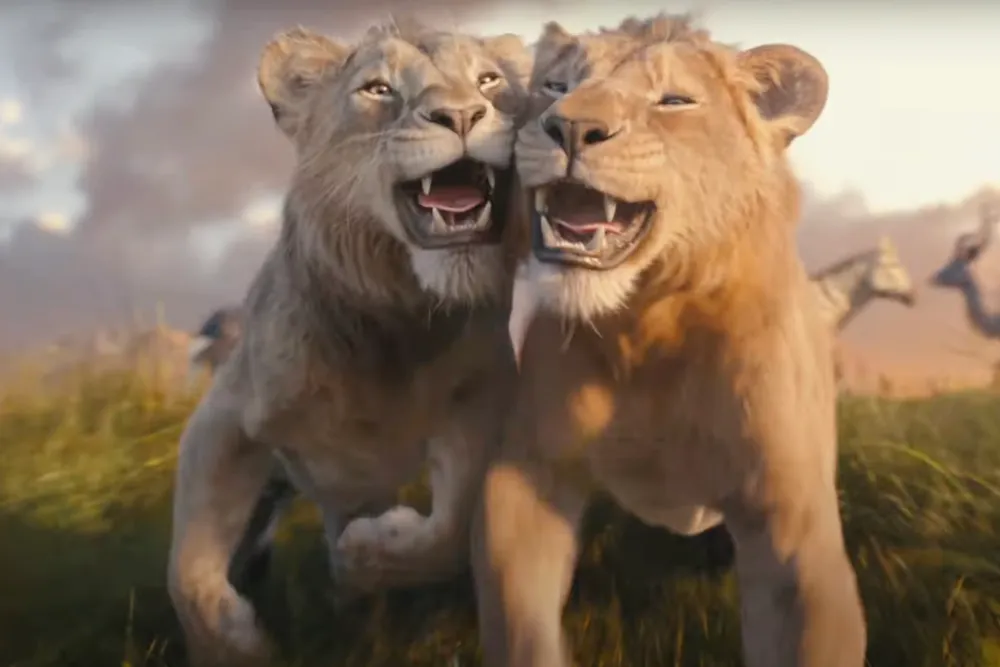

Lynn (Zipfel) Venhaus has had a continuous byline in St. Louis metro region publications since 1978. She writes features and news for Belleville News-Democrat and contributes to St. Louis magazine and other publications.
She is a Rotten Tomatoes-approved film critic, currently reviews films for Webster-Kirkwood Times and KTRS Radio, covers entertainment for PopLifeSTL.com and co-hosts podcast PopLifeSTL.com…Presents.
She is a member of Critics Choice Association, where she serves on the women’s and marketing committees; Alliance of Women Film Journalists; and on the board of the St. Louis Film Critics Association. She is a founding and board member of the St. Louis Theater Circle.
She is retired from teaching journalism/media as an adjunct college instructor.

